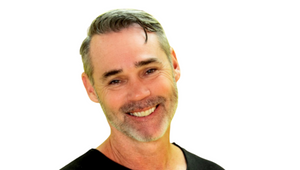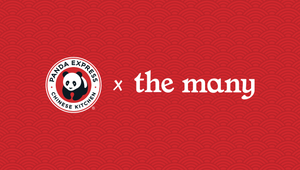
Bossing It: Never Underestimating the Humility Needed to Lead with Davis Jones

As managing director of connections strategy, Davis oversees the unified strategic process at The Many. This entails the many types of strategy (brand, comms, social, digital, media, analytics) and all the vibrant minds that come with it. He has elevated strategic work for a range of categories including: healthcare, technology, financial services, CPG, automotive, B2B and more. Perpetually up for the challenge, Davis seeks to find the business opportunity in the midst of marketing disruption.
LBB> What was your first experience of leadership?
Davis> For me it started with team sports. It taught me that leadership is not just what you say, it’s what you do. In sports that means showing up every day with consistent effort and optimism, rain or shine, win or lose. It’s simple, not easy. The powerful thing about that is anyone can do it. It doesn't matter if you're the coach, captain or somebody not playing much at all. The leaders I admire have a mindset focused on realising the potential of everyone on the team. They contribute to dynamics that strengthen the whole and aren’t overly concerned with being recognised for the success of it. They operate from a sense that they are part of something bigger than themselves. These concepts stuck with me when I got into leadership positions.
LBB> How did you figure out what kind of leader you wanted to be - or what kind you didn't?
Davis> I think I was in eighth grade. At that time, teachers taught during the day, and then volunteered to coach after school. I wasn’t the best player on the team and was still learning a lot of the fundamentals of the game. And my teacher called me out in class. He said, “You may not appreciate him or fully understand his value, but he shows up every day, works hard and makes all of his teammates better.” That was a moment when I recognised that you don't have to be the captain to lead - leaders can come from anywhere. It's about how you choose to show up and the quality of your contribution. And to pay attention to the intangible contributions. The things that are hardest to see or quantify are often the difference makers.
LBB> What experience or moment gave you the biggest lesson in leadership?
Davis> The early pandemic - I’ve never faced anything like that with the business pressure, social justice, boycotts of brands and platforms, political chaos. There was so much churning. The conversations that it opened up in this industry were uncomfortable, raw, emotional. It was a moment when people demanded a next level of listening, communication, empathy and support from leaders. And it was a reminder to never underestimate the humility needed to lead.
LBB> Did you know you always wanted to take on a leadership role? If so? How did you work towards it? And if not, when did you start realising that you had it in you?
Daivs> It was less about, “I really want to be in a leadership position.” What I loved was building and succeeding as a team. I loved watching people find their voice, watching them grow, facilitating their growth, putting them in positions that challenged their own perspectives on what they were capable of achieving. Along the way I started to understand what came naturally to me in terms of leadership and also where I needed to focus to become stronger. What became clear was that leadership is actually a different job altogether, which I found inspiring. That’s when my interest in it grew and I started to study it through books, mentors and my own personal experiences.
LBB> What are the aspects of leadership that you find most personally challenging? And how do you work through them?
Davis> One of the most challenging parts about leadership is understanding that I won’t always be liked. Leadership requires serving a higher order purpose than any individual, including myself. That means the leader needs to make difficult decisions that don't please everyone. One of the most difficult transitions I've experienced has been learning to be at peace with that. For me, leadership starts with understanding myself - values, strengths, vulnerabilities, opportunities for growth. If I’m clear on that, I am able to operate from a grounded place. And that typically gives me clarity and confidence in the decisions that I make.
LBB> Do you think it's important to be as transparent as possible in the service of being authentic? Or is that value? And being careful and considered?
Davis> Transparency is critical as is context and clarity. Too much or too little transparency both carry risk, so leaders have to walk the line and make judgment calls constantly. Leaders often operate at a different altitude in the company and so have access to different information and context than the rest of the organisation. Any initiative or decision is a work in progress which means on the way to clarity there are often disagreements, ideation, tangential conversations, negotiations amongst leaders. As leaders we have a responsibility to keep the teams updated on the progress and to use restraint as we’re working through it. As with any initiative, there can be significant swings in terms of the direction we end up going and oversharing in that process can be a distraction to the entire organisation.
LBB> How’d you develop your leadership skills? Did you have a mentor? If so, who were are they? And what have you learned? You've learned everything? That's kind of weird. And on the flip side, do you mentor any aspiring leaders? And how do you approach that relationship?
Davis> I think in this industry, people often elevate to leadership positions based on their expertise in their craft. However, leadership is a different skill set and requires the same intention and dedication to learn as one’s functional craft. This was my path as well and I didn’t realise that until I was in a leadership position.
Effective leadership requires authenticity which means the path to develop skills starts inside. I invested time in developing self-awareness, understanding how to work with feelings, (my own and those of others), practicing active listening, paying attention to group and team dynamics, reading books, attending trainings, cultivating relationships with mentors. I have found mentors in managers, I have also found them in books, podcasts and historical figures. Perhaps most importantly, I have worked hard to pay close attention to how people communicate (verbal and non-verbal), their presence, the words they use, how they use time, how they think, how they give and receive feedback. There is no substitute for experience.
I have worked with many aspiring leaders and in those relationships I focus less on giving them advice on how I would do something (unless they ask!) and more on helping them find their way of doing it. I have found that in situations where I am a mentor, I can be just as effective asking questions as I can giving answers.
LBB> As a leader, what are some of the ways in which you have prioritized diversity and inclusion within your workforce?
Davis> First, we can only optimise what we measure. We’ve established systems that allow us to have clear data and inputs related to hiring, staffing, exits, feedback and ongoing sentiment. This data is the foundation for the actions and initiatives we prioritise in terms of diversity, inclusion and overall culture. Next, we have established resources for our teams which provide budget and opportunities for support, action, celebration and engagement for the entire organisation. Through these groups we have had all agency discussions, workshops, parties, panel discussions and cultural events all intended to bring people together and create community. Finally, as leaders and managers one of our most important jobs is understanding the people on our teams. This allows us to provide opportunities, coaching, focused feedback and support for the people of the agency. The intention is to provide everyone at the agency with a clear path and understanding of how they fit into the organisation and how to continue to grow.
Our agency ethos is Challenge Comfortable. This keeps us focused on not shying away but instead leaning into the things that make us uncomfortable. Our differences have made and continue to make us stronger. And although this work will never be done, the emotional maturity, empathy and vital curiosity we hold as an agency will continue to push us in the right direction.
LBB> How do you cope with the responsibility of leading a team through difficult waters?
Davis> The amount of uncertainty and disruption is humbling. What keeps me grounded is focusing on what I can control. How I take care of myself, how I show up, how I prepare. I know the things in my life that nourish me and when I start to feel disconnected or out of balance, most of the time it’s the result of not prioritising them. And then there’s the ongoing practice of staying in the present moment. There are so many distractions, so many things to be fearful or anxious about, so much communication. Sifting through what is essential and useful and staying focused on the highest leverage actions is core to a feeling of making progress. And that is core to my ability to be a consistent resource for the teams.















